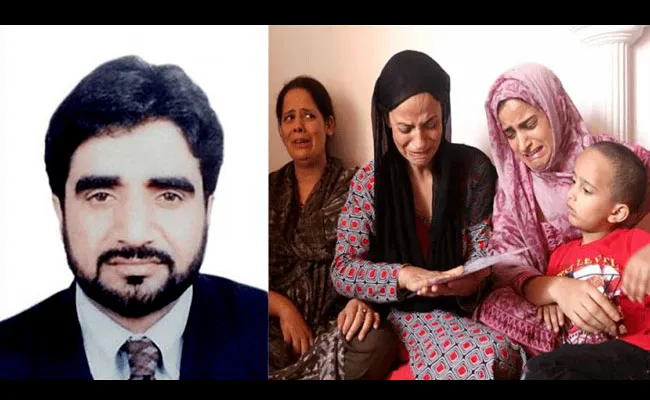In Indian illegally occupied Jammu and Kashmir, justice remains elusive for the family of the martyred human rights activist and lawyer, Jaleel Andrabi, even after 28 years. This stands as a stark example of impunity and a violation of the family’s right to justice.
Jaleel Andrabi was arrested by Major Avtar Singh of the Indian army’s 35th Rashtriya Rifles on March 8, 1996. Three weeks later, his body was discovered floating in the Jhelum River, as reported by Kashmir Media Service today, marking the 28th anniversary of the rights activist’s martyrdom.
Andrabi was targeted for his documentation of human rights abuses by Indian troops in Indian illegally occupied Jammu and Kashmir (IIOJK). He vocally opposed the crimes committed by Indian forces in the region.
Meanwhile, both the All Parties Hurriyat Conference spokesman, Adv Abdul Rashid Minhas, and the Kashmir Bar Association, in separate statements, paid homage to Jaleel Andrabi. They emphasized that his activism and participation in the 1994 Annual UN Human Rights Council convention in Geneva led to his martyrdom, highlighting his unwavering dedication to the Kashmir cause. Asserting that the people of Kashmir will forever honor the sacrifices of martyrs like him, they demanded the international community to pressure India into allowing a thorough investigation into Jaleel Andrabi’s murder and holding the perpetrators accountable. They emphasized that this is the only path towards justice.
In Islamabad, the Convener of APHC-AJK chapter, Mehmood Ahmed Saghar, Altaf Hussain Wani and Chaudhry shaheen Iqbal called upon international human rights organizations, including the United Nations Human Rights Council, Amnesty International, and Asia Watch, to take serious note of the egregious human rights violations perpetrated by Indian forces in occupied Jammu and Kashmir.
They reiterated that Andrabi’s struggle and sacrifice are deeply embedded in Kashmir’s history, urging justice for his family. The Institute and Documentation Centre (IDC) has honored the memory of prominent Kashmiri lawyer and human rights activist, Advocate Jalil Ahmed Andrabi, on his 28th martyrdom anniversary, today.
According to Kashmir Media Service, Jalil Ahmad Andrabi was apprehended in broad daylight by Indian army personnel, notably Major Avtar Singh, in Srinagar on March 8, 1996, and subsequently subjected to fatal torture while in custody.
Professor Farhan Ali, Chairman of the Institute and Documentation Centre (IDC), expressed condolences in Srinagar, highlighting Andrabi’s dedication to human rights activism, particularly his participation in the 1994 Annual UN Human Rights Council convention in Geneva, where he documented human rights violations by Indian troops in occupied Jammu and Kashmir (IIOJK).
The statement emphasized that the brutal killing of Jalil Andrabi and other activists remains deeply ingrained in the collective memory of Kashmiris, attributing responsibility to Indian troops, paramilitary forces, and police personnel for the abduction, torture, and killing of rights and political activists in IIOJK.
Describing Andrabi’s murder as a blatant case of extrajudicial killing, the IDC Chairman underscored the prevalence of terrorism in Kashmir’s recent history, citing it as evidence of India’s colonial mindset and animosity towards Kashmiris.—KMS










